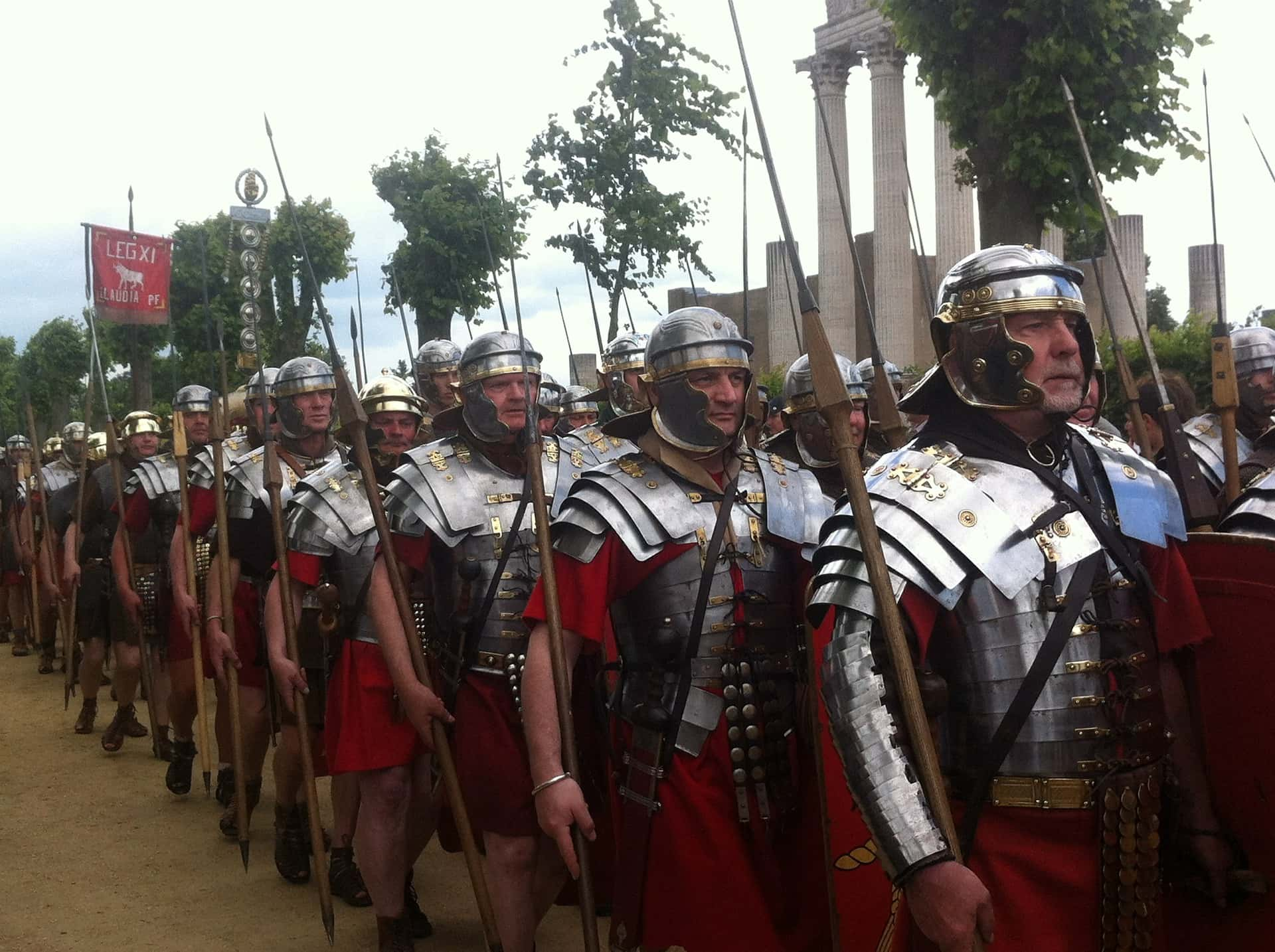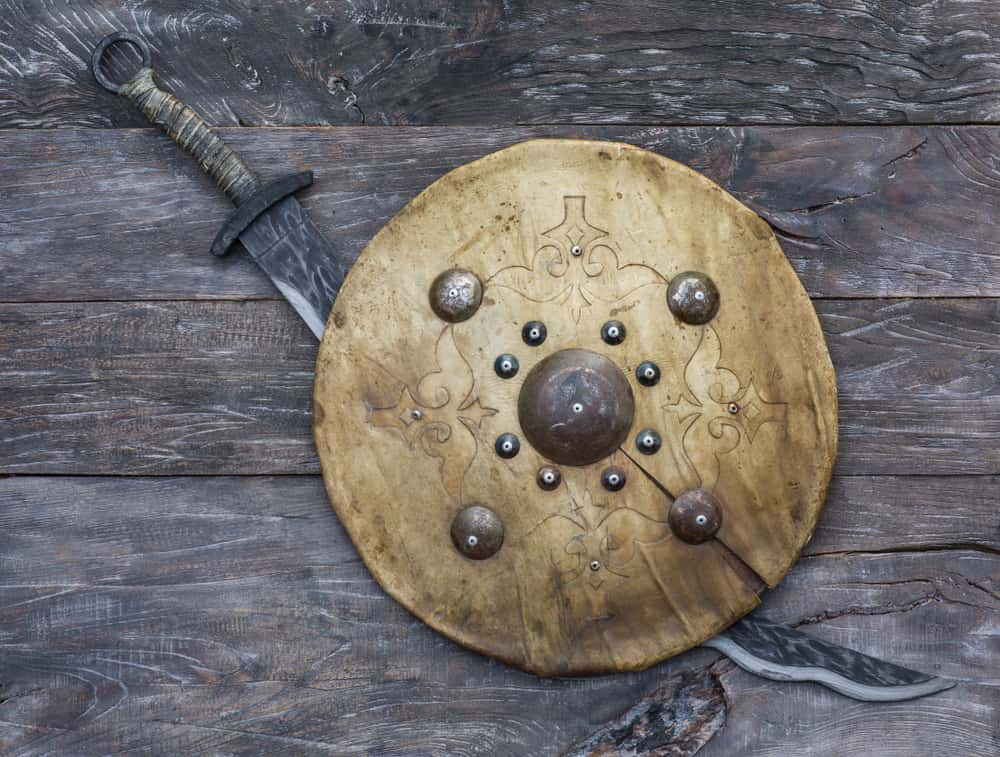The Roman legions didn't often know defeat. Military supremacy is what made the Roman Empire one of the most powerful in history. So the thousands of Roman soldiers who lay dying in the German mud of Teutoburg forest in 9 AD must have, beneath the pain of their wounds and the fear of death, felt a keen surprise. Roman legions didn't often know defeat, and here three of them were utterly annihilated. This was not something a legionary expected to experience in his career.
Lose the Battle, Change the World
The Battle of Teutoburg Forest, also known as the Varian Disaster, was hardly a battle. It was a slaughter. Tens of thousands of Roman soldiers lost their lives in the pouring rain. But it was also more than that: It was the point where the Empire finally hit a wall. It proved that the Romans were not invincible. It also defined the border of the Empire—a border that would stand for centuries. They were stopped in their tracks, and they never again tried to conquer the lands beyond the forest.
This one battle helped define the history of Europe as we know it. It's why the interior of what's today Germany and the Czech Republic was never Romanized—not to mentioned the lands beyond. To put it another way, Germans today would likely not even speak German were it not for the Battle of Teutoburg Forest.

Sign up to our newsletter.
History’s most fascinating stories and darkest secrets, delivered to your inbox daily. Making distraction rewarding since 2017.
In Varus We Trust
So how did the mighty Romans, one of the greatest military powers the world has ever seen, get defeated so soundly? The answer lies with two men: a Roman named Varus and a German named Arminius.
At the time of the disaster at Teutoburg, Publius Quinctilius Varus was one of the most important men in Rome. A remarkably cruel and ruthless patrician, his penchant for crucifying his enemies made his reputation precede him wherever he went. He had previously been governor of Africa and Syria, both Roman provinces at the time, where he was known for harsh taxation and for the brutal punishments he doled out to those who challenged Roman rule.
Augustus, the Roman Emperor, clearly approved of Varus’s methods. In 7 AD, when the new province of Germania was established, he appointed Varus as its governor. Confident that the primitive Germanic tribes had been pacified, Varus headed north with all the confidence in the world, assured he was on his way to claim glory as the Roman border pushed further and further beyond its center. Within years, he would find his doom at the tip of a sword.
Enter Arminius
A young German named Arminius was in Varus’s entourage. Despite being a member of the Germanic Cherusci tribe, Arminius was taken hostage as a young boy and raised in Rome. By all accounts, a Roman upbringing had turned this young savage into a model citizen. He was drafted into the Roman military, serving courageously in the Great Illyrian Revolt, and rose to the rank of equite—the Roman equivalent of a knight.
Having impressed the powers that be, Arminius was eventually stationed back in his homeland of Germania. No doubt, it was assumed that his German roots would be invaluable in bringing the region to heel. But while Arminius seemed to be a model Roman on the surface, he was still a German at heart, and the Empire paid a steep price for sending him north.
In the early years of the first century AD, Roman territory extended just east of the Rhine. Decades earlier, Julius Caesar had crossed the river and begun pressing into Germany’s interior, but Roman successes were mixed. By the time Varus took control, the Romans had several settlements east of the Rhine, yet were still working on colonizing the region.
Trouble Is Brewing
When Varus first took over in Germania, the Romans had a strong military presence east of the Rhine, with 11 full legions stationed there. However, somewhere between 6 and 9 AD, a rebellion sprung up in the Balkans. Eight of those 11 legions were sent to quell the revolt, leaving just three legions at Varus’s disposal, Legio XVII, XVIII, and XIX.
It was at this point that Arminius, the well-respected young soldier, came to Varus with a report of yet another rebellion, this one across the Rhine. A problem, to be sure, but one that three legions would easily be able to deal with. Varus didn’t need much convincing. Even after Arminius’s father-in-law warned Varus that Arminius might have an ulterior motive, the governor was undeterred.
He set his legions on the march to gloriously slaughter the uncivilized rebels.
Double Agent
Arminius played the part of a Roman well, but like we said, he was a German at his core. The story of the rebellion had been a complete fiction, and he had gathered men from several German tribes to ambush the doomed legions. The Germans had every advantage, but Varus, in his arrogance, almost made it too easy for them. The men of the legions had little knowledge of the region and next to no experience fighting Germanic warriors.
What's worse, Varus didn't think it was necessary for them to march in combat formation, and the legions instead expanded out in a long, indefensible line that stretched for miles. As if Varus hadn't done enough to doom his men, they likely marched into Teutoburg Forest under a violent storm, which left their path muddy and difficult to traverse.
To the Germans lying in wait, their foes seemed to have been served up on a platter. The much smaller force of Germans surrounded the unsuspecting Romans in the forest and began their slaughter. After the initial fighting, the Romans managed to set up a camp to last out the night, then made a mad dash to open country, suffering even more losses in the process.
As the rain poured, leaving the Romans' bowstrings useless and their shields waterlogged and cumbersome, the legions continued their desperate flight—until they found themselves caught in a narrow strip of land between a thick forest and a swamp known as the Great Bog. The Germans, who had been waiting for this trap to go off, renewed their assault, and the Roman numbers dropped again.
The End Is Nigh
The legions attempted one final assault, but they failed miserably. The Germans finally broke out into the open and rushed the remaining soldiers, finishing them off once and for all. Varus, the arrogant and cruel Roman governor, threw himself on his sword before the Germans could cut him down. He had listened to Arminius, ignored all warnings, and acted without any caution whatsoever; the worst defeat in Roman history lay squarely at his feet.
Anywhere between 15,000 and 36,000 Roman soldiers lost their lives that day, their bodies left to rot in the trees of Teutoburg Forest. After the slaughter was done, the Germans were quick to erase every trace of Rome that lay east of the Rhine and keep them out from that point on.
Sore Losers
A defeat like this was not something the Romans were used to. When Emperor Augustus was informed of the disaster, he pounded his fist against the wall and screamed, “Quintili Vare, legiones redde!” (Quintilius Varus, give me back my legions!). So unprecedented was this annihilation that the Roman army never used the numbers XVII, XVIII, and XIX for legions ever again.
Roman writers could scarcely comprehend what had happened in the trees and the mud of Teutoburg. Never before had the Roman Legions seemed so fallible. Even a century after the battle, one Roman historian wrote that it “nearly wrecked the Empire.” Before this, the story of Rome had been one of unstoppable of expansion. After, any Roman standing on the banks of the Rhine, gazing across at the unconquered lands on the far shore, would remember the Battle of Teutoburg Forest, where the illusion of the invincible Roman legion was drowned in rain and blood.



















